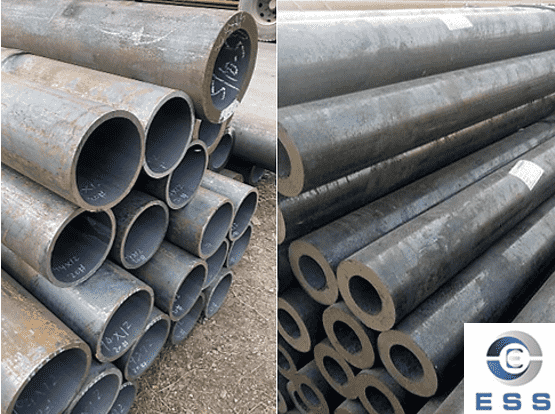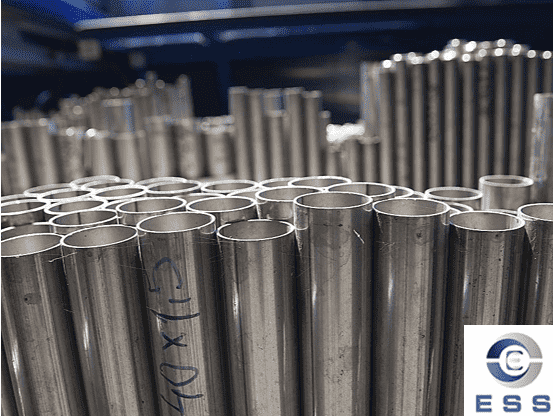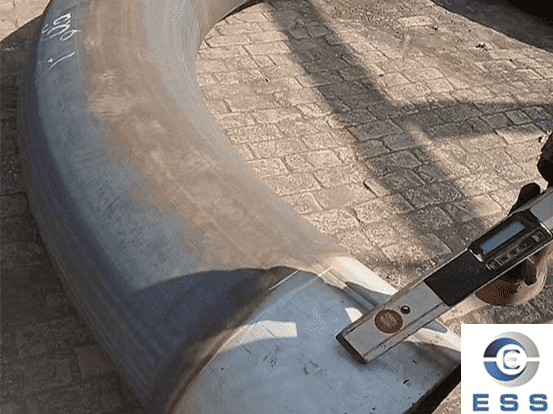What is the service life of casing pipe?
The service life of casing pipe is affected by many factors such as its use environment, materials, manufacturing process, etc. But generally speaking, the service life of casing pipe is about 10-20 years. Some high-quality casing pipe can be used for more than 30 years.
What are the factors affecting the life of casing pipe?
In particularly harsh environments, the service life of casing pipe will be greatly shortened. For example, when used under high temperature, low temperature, humidity, acid and alkali conditions, the life of casing pipe will be greatly limited.
1. Material and steel grade
The steel grades of oil casing include J55, K55, N80, L80, C90, T95, P110, Q125, V150, etc. Casings of different steel grades have different strengths and corrosion resistance, which affects their service life.
2. Manufacturing process
The manufacturing process of casing, such as sub-temperature quenching method, can improve its impact toughness and corrosion resistance. For example, the 27MnCrV steel grade oil casing can improve toughness while maintaining high strength through sub-temperature quenching treatment, thereby extending its service life.
3. Use environment
The use environment of the casing in oil and gas wells is complex, and it is subject to the combined effects of tension, compression, bending, torsion and other stresses. In a corrosive environment, the corrosion resistance of the casing is particularly important.
4. Maintenance and inspection
Regular inspection and maintenance of the casing, timely detection and repair of potential damage, can extend its service life. For example, the transformer bushing needs to be regularly checked for its sealing performance and oil level to ensure its normal operation.
5. Heat treatment
The heat treatment process has an important influence on the mechanical properties and service life of the casing. For example, the oil casing may need to undergo heat treatments such as normalizing, annealing, quenching and tempering during the production process to improve its performance.
6. Anti-corrosion measures
In a corrosive environment, the casing needs to take effective anti-corrosion measures, such as coating protection, cathodic protection, etc., to extend its service life.
7. Design and construction
Reasonable design and construction are also the key to ensuring the life of the casing. For example, the connection method, installation accuracy and construction quality of the casing will affect its performance and life in actual use.
8. Chemical composition
The chemical composition of the casing has a direct impact on its performance and life. For example, casing with lower sulfur and phosphorus content usually has better corrosion resistance.
9. Mechanical properties
The mechanical properties of the casing, such as yield strength, tensile strength and impact toughness, are important indicators for evaluating its service life. Through strict mechanical property testing, the reliability of the casing in actual use can be ensured.
10. Material
Generally, seamless steel pipes are used,the material used for the casing also has an impact on its life. For some poor quality and substandard casings, the service life will be greatly shortened due to unqualified materials, incorrect processing technology, etc. On the contrary, casing made of high-quality materials will have a longer service life.
Does the maintenance of the casing pipe affect the life?
The maintenance of the casing also affects its service life. Regular inspection of the casing, prevention of moisture, sealing maintenance, cleaning maintenance, attention to transportation and installation, professional training of maintenance personnel, timely handling of defects, use of appropriate materials and tools, recording and tracking, compliance with operating procedures and other maintenance measures can extend the service life of the casing pipe.
In general, although the casing has a long service life, it also has certain limitations. Therefore, you should understand its service life and limitations before use, and use and maintain it strictly in accordance with the requirements to extend its service life.













 Eastern Steel Manufacturing Co.,Ltd not only improve product production and sales services, but also provide additional value-added services. As long as you need, we can complete your specific needs together.
Eastern Steel Manufacturing Co.,Ltd not only improve product production and sales services, but also provide additional value-added services. As long as you need, we can complete your specific needs together.









